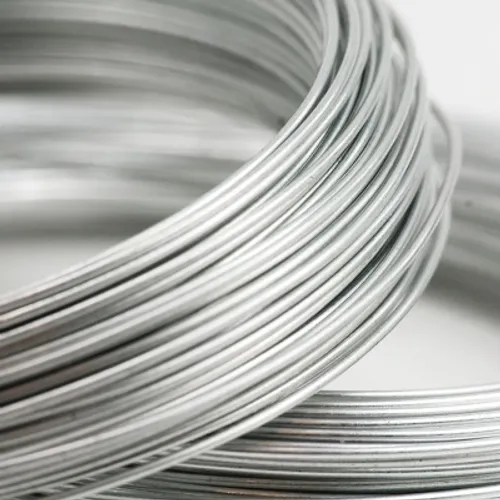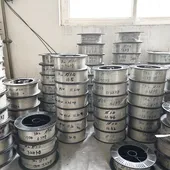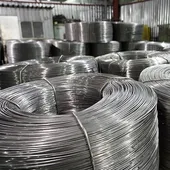
Titanium Wire vs. Stainless Steel Wire: A Head-to-Head Comparison
When selecting a high-performance wire, the choice often comes down to two titans of the material world: titanium and stainless steel. Both offer excellent performance over standard steel, but their unique properties make them suitable for very different applications. Making the right choice means understanding where each material shines.
Here’s a head-to-head comparison across the most critical factors.
1. Strength-to-Weight Ratio
This is titanium’s most famous advantage. Grade 5 titanium (Ti-6Al-4V) wire has a tensile strength comparable to many high-strength steel alloys but is approximately 45% lighter. For applications where every gram counts, there is no contest.
- Winner: Titanium
- Best For: Aerospace, high-performance racing, advanced sporting goods.
2. Corrosion Resistance
Stainless steel’s “stain-less” property comes from a passive layer of chromium oxide. It performs well in many environments but is famously vulnerable to corrosion from chlorides, such as saltwater.
Titanium forms a highly stable, self-healing layer of titanium dioxide. This layer makes it virtually immune to corrosion from saltwater, chlorides, and a wide range of acids and industrial chemicals. For marine or chemical applications, titanium offers a “fit and forget” lifespan where stainless steel would eventually pit and fail.
- Winner: Titanium
- Best For: Marine hardware, chemical processing, medical implants, desalination equipment.
3. Biocompatibility
For any application that involves contact with the human body, biocompatibility is crucial. Titanium is completely bio-inert, meaning it is non-toxic and not rejected by the body. Many stainless steel alloys contain nickel, which can cause allergic reactions in a significant portion of the population.
- Winner: Titanium
- Best For: Surgical staples, pacemaker leads, orthodontic wires, bone pins.
4. Cost
There is no getting around it: titanium is a more expensive material. The processes to extract, refine, and machine titanium are more complex and energy-intensive than those for steel. If the application does not have extreme weight or corrosion constraints, stainless steel is the more economical choice.
- Winner: Stainless Steel
- Best For: General-purpose applications where cost is a primary driver.
5. Fatigue Resistance
Fatigue is failure due to repeated cycles of stress (e.g., flexing or vibration). Titanium alloys, particularly Grade 5, exhibit excellent fatigue resistance, allowing them to endure more stress cycles before failing. This is critical for components that are under constant dynamic load.
- Winner: Titanium
- Best For: Springs, control linkages, high-performance engine components.
Summary Table
| Feature | Titanium | Stainless Steel |
|---|---|---|
| Strength-to-Weight | Exceptional | Good |
| Corrosion Resistance | Superior (Immune to Chlorides) | Good (Vulnerable to Chlorides) |
| Biocompatibility | Excellent | Fair (Nickel Allergies) |
| Cost | High | Low |
| Fatigue Resistance | Excellent | Good |
Conclusion: Which Should You Choose?
-
Choose Titanium Wire when your application demands the absolute best performance: minimal weight, complete immunity to corrosion (especially in saltwater), or direct contact with the human body. The higher initial cost is an investment in unparalleled reliability and longevity.
-
Choose Stainless Steel Wire when you need good corrosion resistance in a non-saline environment and cost is a major factor. It is a reliable and proven performer for a vast range of less-demanding applications.
Still unsure? Our material experts can help you analyze your project’s needs to select the perfect wire for the job.
Quick Contact
Related Products
-

Titanium Wires
Titanium Wires
Product Categories
- Titanium Anode Basket 1
- Titanium Foils 1
- Titanium Pipes 1
- Titanium Rods 1
- Titanium Tubes 1
- Titanium Wires 3
- Nuts & Bolts 1
- Special Titanium Alloys 1
- Titanium Anodes & Electrodes 1
- Titanium Equipment 1
- Titanium Mesh 1
- Titanium Sheets & Plates 1
- Titanium rods 3
- Titanium foils 3
- Titanium sheets and plates 3
- Titanium pipes 3
